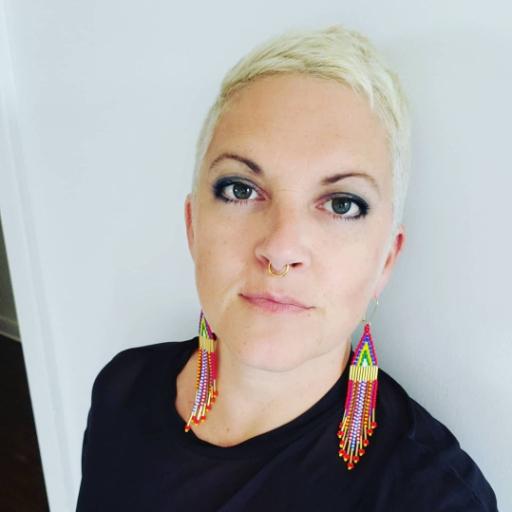
Dr. Mel Lefebvre
Pronouns: They/Them
- Full-Time Faculty, School of Community and Public Affairs
Are you the profile owner?
Sign in to editResearch areas: *areas of interest & convergence* Artistic practices and aesthetics, ancestral skin marking, traditional tattooing, literature, culture and cultural revival, history, Indigenous health, environmental and social justice, Indigenous ways of being, sovereignty, Indigenous methods and methodologies, Indigenous futurisms, Indigenous quantum cosmology, quantum physics, Indigenous astronomy
Contact information
Biography
Biography
My name is Dr. Mel Lefebvre. I am a Two-Spirit (2S) Michif, Nehiyaw, French, and Irish mother and ancestral skin marker (traditional tattoo practitioner). I am also a community worker, artist, writer, and scholar in Concordia University's First Peoples Studies program.
I am a member of the Manitoba Métis Federation and a descendant of many Red River Michif, Nehiyaw, Nakoda, Saulteaux, and French families on my father’s side including Desjardins, Delorme, and Guiboche. I am a direct descendant of Madeleine Vivier and Urbain Delorme, leaders of the bison hunt. Side by side with Louis Riel, my ancestors fought for Red River free trade, in the 1885 Resistance at Duck Lake with Gabriel Dumont, and were members of the Cypress Hills Métis hunting brigade (Barkwell, 2016, p. 33-34).
On my mother’s side, we are Irish of the Doyle, Griffin, and MacDonald clans from Limerick, Ireland. Some of the places my Michif relations are from include Fisher Branch, Saint Francois Xavier, St. Vital, and Carman, Manitoba; La Ronge, Saskatchewan; and Pembina, North Dakota. I am sharing my family names because that is how we understand our kinship relations and how other Indigenous Peoples can identify us: through our communities and the lands we belong to.
I offer skin marking as a mode of healing and (re)connection for urban Indigenous Peoples, particularly 2SLGBTQIA and Indigenous women, as well as uncovering,(re)claiming, and creating skin markings in contemporary and future contexts. My practice is rooted in the Michif and Nehiyaw relational methodologies of kiyôkêwin (visiting), wâhkôhtowin (kinship), kitimahkinawow (pity and compassion), and tâpwêwin (truth telling).
I have worked closely with the Native Women's Shelter of Montreal (NWSM) for many years where I am vice-president of the board. I also sit on the Indigenous Organizational Advisory Table developed through the Montreal Indigenous Community NETWORK, was a co-creator of Kanekó:ta Indigenous Adult Education School in downtown Montreal, and developed an Indigenous library for both the NWSM and the Leclerc Prison where a large portion of those incarcerated are Indigenous women.
Teaching activities
Courses
First Peoples Studies (FPST)
- Ancestral Skin Marking
- First Peoples & Education
- First Peoples & Social Issues
- First Peoples & Contemporary Politics
- First Peoples & Globalization
- Indigenous Futurisms (Design & Computation Arts (DART))
- Indigenous Research Methods
Publications
Publications
Kaszas, D. (2023) A. Clyburn, M. Lefebvre, M. Tamez (Eds.) Nlaka’pamux Visual Dictionary: A Knowledge Basket.
Fast, E., Lefebvre, M., Boldo, V., Clark, M., Smith, S., Richardson, C. Coming together around the fire to understand M(m)étis identities in Québec. Red Rising Magazine, Issue 9, pages 66- 67.
Fast, E., Lefebvre, M., Reid, C., Deer, B.W., Swiftwolfe, D., Clark, M., Boldo, V., Mackie, J., Tutanuak, K., Mackie, R. (2021). Restoring our Roots: Land-based community by and for Indigenous youth. International Journal of Indigenous Health.
Lefebvre, M., Fast, E. (2021). Indigenous perspectives on Child and Youth Care Ethics. Varda Mann- Feder. Doing Ethics in Child and Youth Care: A North American Primer.
Canadian Scholar / Women's Press
Fast, E., Lefebvre, M., Boldo, V., Nakuset, Philips, A., Lamore, L. One Step Forward, Two Steps Back: Child Welfare Services for Indigenous Clientele Living in Montreal, 2019


